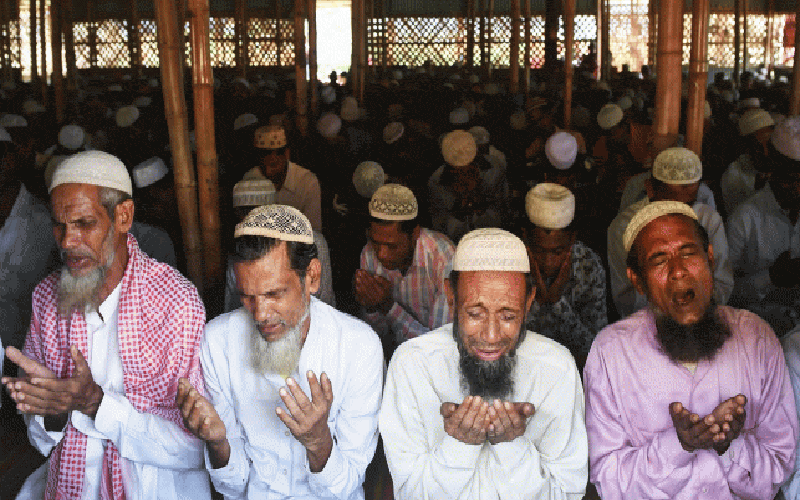Sittwe: Protesters in Myanmar’s troubled Rakhine state demonstrated Sunday against the planned repatriation of Rohingya Muslims from Bangladesh, referring to them as “runaway refugees”.
About 100 people led by Buddhists monks marched through the state capital Sittwe holding red banners and chanting slogans.
“There will be no benefits to us or our country if we accept the Bengalis,” one monk said, according to a live video streaming of the protest.
Bengali is a derogatory term for the Rohingya in Myanmar that falsely implies they are newcomers from Bangladesh.
The demonstration comes 10 days after Bangladesh and Myanmar were supposed to officially start repatriating members of the Rohingya minority who had fled violent military operations in August 2017.
Rohingya refugees in Bangladesh said Myanmar’s armed forces raped women, murdered their relatives and burned down their houses in a bid to drive them permanently out of the country after decades of persecution.
The deal to bring them back was struck a year ago but Rohingya in the Bangladesh camps fear returning without guarantees of citizenship, safety, and equal access to healthcare and education.
They also are wary of hostility from the non-Muslim residents in Rakhine.
The Buddhist protesters in Sittwe on Sunday reflected that view, holding signs that included calls for authorities to not “allow resettling (of) the runaway refugees” in parts of northern Rakhine state.
“The government should take precise action against illegal immigrants from Bangladesh,” said Kyawt Sein, a member of the protest committee.
UN investigators have called for Myanmar’s top brass to be prosecuted on charges of genocide at the International Criminal Court or an ad hoc tribunal.
Myanmar denies almost all claims of atrocities and says it was defending itself against Rohingya militants.
Demonstrations against the Rohingya are not uncommon in Sittwe, where intercommunal violence broke out in 2012, killing hundreds and sending more than 120,000 Rohingya into internal displacement camps where most remain today.
[source_without_link]Agence France-Presse[/source_without_link]

